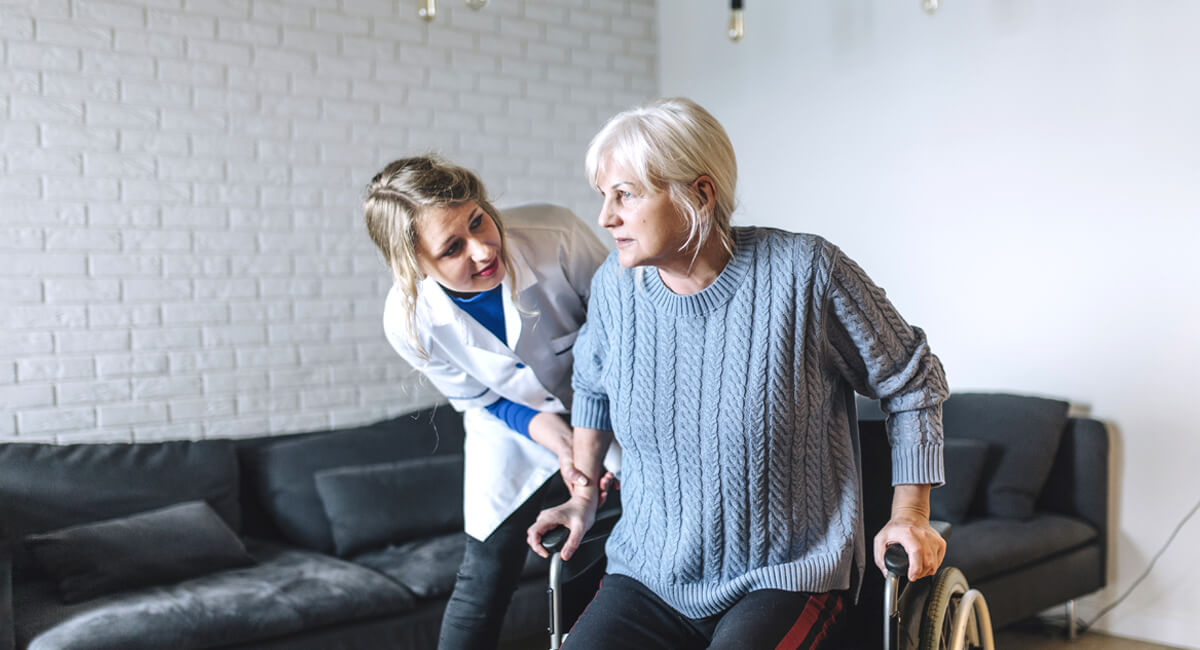
How to enhance mobility issues in the elderly: Try these 8 tips
As people get older, they may find that their mobility begins to suffer, and it is one of the most common problems with ageing. However, it causes enormous distress, and such issues will have a large impact on their daily lives. For example, they might not be able to carry out their daily activities, meet friends, or even go for an appointment. This can have a social and psychological effect on an individual, which further leads to depression. Mobility issues among the elderly also indicate more serious health issues. As a result, it is critical to be on the lookout for trouble signals and take the appropriate steps to remedy them.
In this post, we will discuss early warning signs of mobility issues, how to deal with them, and ten tips to enhance mobility in the elderly.
What are the early signs of mobility issues?
There are various early signs of mobility issues that you need to look out for in your elderly loved one. These include:
a) Balance issues, such as becoming unsteady when walking
b) Having difficulty getting out of a chair or when sitting down
c) Difficulties moving up and down stairs
Apart from that, there are certainly potential problems that take a more subtle form, such as a lowering of their hygiene standards or not keeping the house clean due to their mobility issues.
One of the most common serious signs is a fall. The risk of falling goes up as a person ages; although it might be an accident, it could also be a sign that they are having difficulty moving properly. Moreover, falls also cause further mobility issues as they cause injuries.
How can the elderly cope with mobility issues?
Once it is evident that you or your loved one is facing mobility issues due to ageing, it is advisable to start looking for ways to cope with them.
First, you should start considering investing in mobility aids so that they can be used around the house, which includes small devices like walking sticks, support bars on the stairs, or grab bars in the bath and shower. It could also include bigger gadgets like chairlifts.
It is advisable to help remove clutter in the house of a senior by fastening carpets and rugs securely and improving the lighting, all of which make it easier for the elderly relative to get around the home. You might also make more substantial alterations to your property, such as converting the entry stairs to a ramp or installing a raised toilet.
Let's look into the top 10 ways to improve mobility issues among the elderly:
1. Encourage regular exercise:
Seniors should be encouraged to perform gentle exercises that work for them so as to improve their mobility, as exercise increases balance, eases arthritis symptoms, and enhances coordination. Popular exercise choices for seniors include walking, ballroom dancing, etc. Those who suffer from severe mobility issues should consult with a physical therapist to find suitable exercises. Some elders may require assistance when practising activities at home.
2. Focus on improving balance:
Maintaining mobility relies heavily on balance. Improving balance is critical for older people who want to preserve their mobility and avoid slips and falls. Balance exercises help build strength and offer unique mental and physical challenges to help the elderly maintain physical and emotional well-being. Additionally, these activities lower the risk of developing certain ailments while improving coordination and posture.
3. Make the commitment to stay active:
If the elderly want to improve mobility and maintain it throughout their senior adulthood, it is better to make a commitment to stay active. The more active a senior is, the less likely they will be faced with mobility issues.
4. Make changes to the living space:
To improve mobility, it may be useful to make changes to the living space of the elderly, such as adding rails and ramps to the entrance of their home. Stairways can also be amended to help them maintain mobility while at home. Additionally, make sure seniors have plenty of clear walking space in the home.
5. Eat a balanced diet:
A well-balanced diet among the elderly is essential to improving mobility, strength, flexibility, and balance to stay active. A balanced diet ensures that seniors get the necessary nutrients to keep them healthy and active. Eating nutrient-rich foods like fruits, vegetables, and whole grains gives the body the necessary vitamins and fibres to sustain a healthy lifestyle. Moreover, drinking plenty of fluids throughout the day keeps the elderly hydrated, thereby reducing aches, pains, and fatigue.
6. Manage daily tasks:
Being active is essential to improving mobility, as the more active seniors are, the better they will be at managing things on their own. Instead of paying for an agency carer, elderly people should be encouraged to challenge themselves to do them on their own. One of the main elements of improving mobility is being active and energetic.
7. Don't let age be a determining factor:
Just because seniors have aged doesn't mean that they are any less capable. Don't let a senior's age have an impact on their mind. A strong mind and resolve assist the elderly in overcoming the challenges of old age. Staying active and healthy can demonstrate that age is just a number.
8. Know your boundaries:
Improving mobility doesn't mean going beyond boundaries. The elderly should be made aware of their boundaries at times, especially when it comes to things that they can't handle. Seniors shouldn't risk their mobility for activities or exercises that are unfamiliar to them.
These are some suggestions for improving elderly mobility issues. However, some elders may require additional help at home. Nurses Group Homecare is the leading care agency in the UK and specialises in providing elderly care. Believe us because we are well-known for our care services.